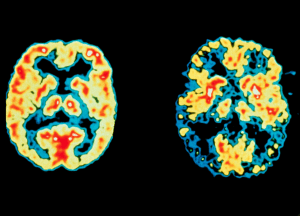
Roche pays $8.3bn for InterMune
pharmafile | August 26, 2014 | News story | Manufacturing and Production, Medical Communications, Research and Development, Sales and Marketing | Cancer, Genentech, IPF, Illumina, InterMune, Roche
Roche has stumped up $8.3 billion in cash to pay for US biotech firm InterMune and will gain access to its new lung scarring drug Esbriet.
The Swiss company says it will pay $74 a share through a tender offer for InterMune, representing a premium of 38% to the closing price on 22 August, and 63% on 12 August, when rumours about the deal began to surface.
Roche was only one of several big pharma firms said to be interested in acquiring InterMune, with GlaxoSmithKline, Actelion and Sanofi all said to be courting the biotech company.
As part of the deal Roche will be buying into InterMune’s lead drug Esbriet (pirfenidone), which has European and Canadian approval for the lung scarring condition known as idiopathic pulmonary fibrosis (IPF).
It is currently undergoing US regulatory review and it’s believed to be on the blockbuster path as analysts see it making more than $1 billion at its peak.
The speculation of a takeover has been growing after InterMune reported a larger than anticipated second-quarter loss last month.
But despite the drop in revenue, the long-term future looks bright for the biotech firm as Esbriet saw sales of $35.7 million in the three months ending June, versus $14.4 million the year before.
The company’s main focus is on the deadly lung scarring disease IPF, which affects 50,000-70,000 people in the US and between 80,000 and 110,000 in Europe.
Although tipped to be a blockbuster, thanks to its high cost and first-in-class status to treat the rare condition, Esbriet’s inability to get an early FDA approval has hampered its immediate prospects.
There is however now the threat of competition in the shape of Boehringer’s IPF drug Inpulsis (nintedanib), which is yet to gain approval in any market, but has been accepted for an accelerated review from both the FDA and the EMA, meaning it could be available from early 2015.
Roche already markets Pulmozyme (dornase alfa) for cystic fibrosis and Xolair (omalizumab), for severe asthma in the US and has other experimental respiratory products in clinical development, including another severe asthma drug called lebrikizumab.
Severin Schwan, the chief executive of Roche, says: “This acquisition will complement Roche’s strengths in pulmonary therapy. We look forward to welcoming InterMune employees into the Roche Group and to making a difference for patients with idiopathic pulmonary fibrosis, a devastating disease.”
Dan Welch, the chief executive and chairman of InterMune, adds: “Roche’s global resources and scale will not only facilitate and accelerate our ability to deliver [Esbriet] to more patients around the world, but also to realise our joint vision to bring additional innovative therapies to patients with respiratory diseases.”
High cash reserves
This bolt-on deal is designed to help Roche diversify its portfolio away from cancer. The firm has seen a mixed bag of results at its attempts to do this internally after clinical trial failures for treatments in diabetes, schizophrenia and heart disease.
This deal will most likely put an end to other merger rumours that Roche might buy the remaining shares in Japan’s Chugai Pharmaceutical for about $10 billion, although Chugai has continually denied it was in talks for such a deal.
It is the first mega-deal that Roche has landed since it walked away from a $7 billion takeover of Illumina, a gene sequencing company, in 2012.
It splashed out nearly $47 billion to buy out the remaining shares of Genentech in 2009, a deal which helped propel it into becoming the world’s biggest cancer drugmaker.
Roche has been under pressure from investors to invest some of its huge cash reserves and this is the third deal it has completed this summer.
It agreed to pay up to $1.7 billion to acquire Seragon Pharmaceuticals to bolster its cancer treatment range and snapped up Santaris, a Swiss rival, this month for $450 million.
It also has added Genia Technologies, a DNA sequencing company, and IQuum, a diagnostics business, this year, but both deals were relatively small.
Ben Adams
Related Content

Central nervous system cancer metastases – the evolution of diagnostics and treatment
The current forms of immunotherapy, how T cell therapy works and what the future holds

Roche receives CE Mark for blood test to help rule out Alzheimer’s
Roche has been granted CE Mark approval for its Elecsys pTau181 test, the first in …

BioMed X and Servier launch Europe’s first XSeed Labs to advance AI-powered antibody design
BioMed X and Servier have announced the launch of Europe’s first XSeed Labs research project, …






